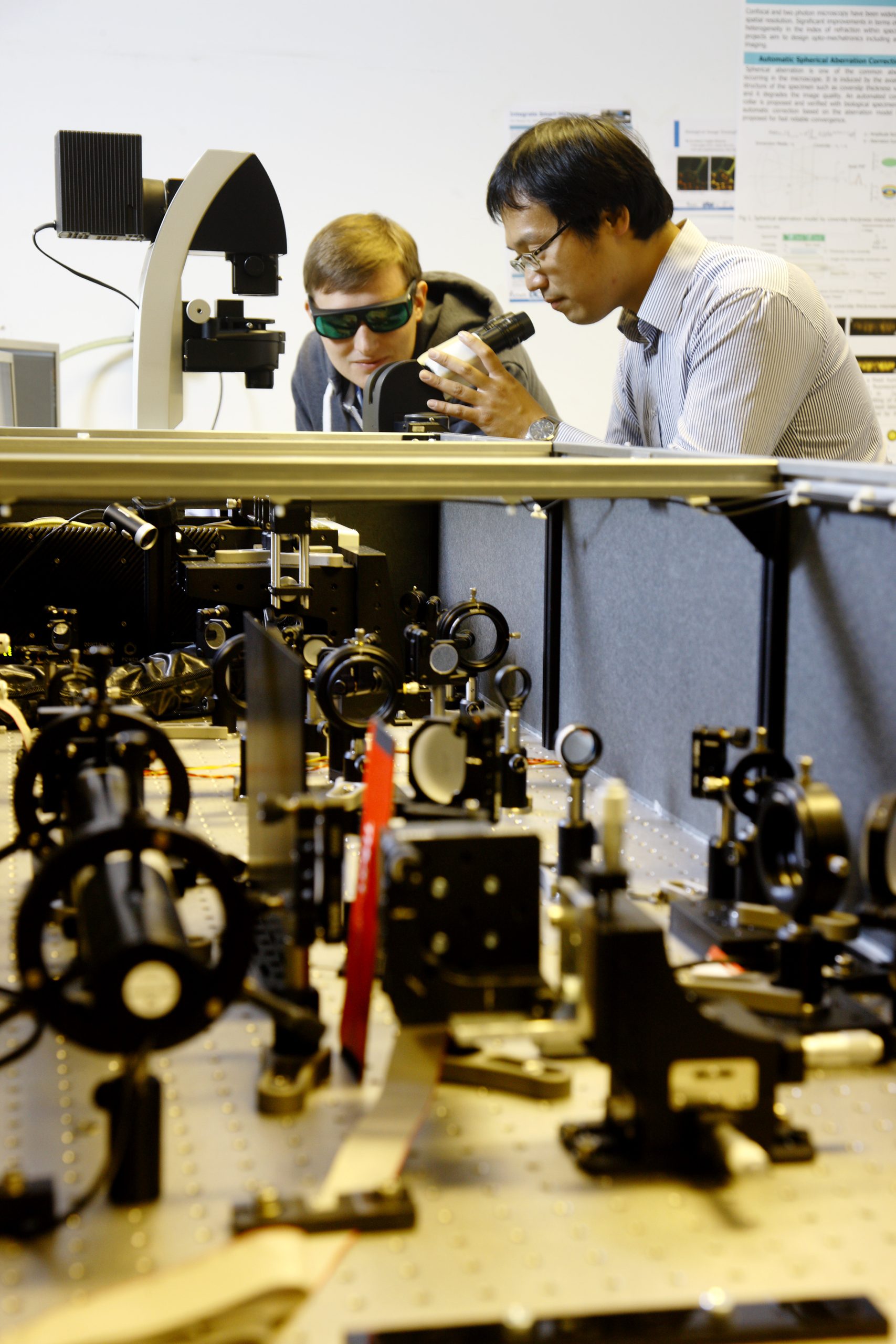Through double doors to keep out dust, behind a thick black curtain and past a warning sign for dangerous lasers, some very precise work is done in the adaptive optics laboratory.
In this lab, research is conducted on highly specialized microscopes. These microscopes, worth hundreds of thousands of euros, are in the process of being modified in order to see and produce clearer images. By adding lenses, mirrors and lasers to the microscope, the students are literally building their own, a unique feature of the lab. The microscopes do not just allow researchers to see the surface of their specimens. Laser beams penetrate the sample and are used to reconstruct a 3D image. This allows the microscope to see layer upon layer within a specimen clearly, even though human tissues, by controlling the phase of light in the laser beam.
Hans Yoo, who is from South Korea, is perusing his PhD in systems and control. Yoo is building an adaptive optics for a confocal microscope. The microscope may appear traditional but that is only part of his construction. “I am manipulating the laser beam to generate a clearer image of living biological tissue,” explains Yoo. The confocal microscope will hopefully reveal a biological phenomenon of proteins and DNAs in a cell which is a marker for cancer. On a neighbouring table, also working on a PhD, Hans Verstraete of Belgium, is in his first year of working to improve an optical coherence tomography (OCT) imaging system. Used by ophthalmologists to scan the retina, the OCT setup is very expensive, but very effective at detecting problems. “I’m trying to improve OCT at no additional cost, so that its use can be more widespread,” says Verstraete.
Research done in the lab spans not just biology and chemistry, but also improves research in lithography and astronomy. The field of adaptive optics is moving from the last century’s focus on mastering the electron towards a future of manipulating the photon.



Comments are closed.